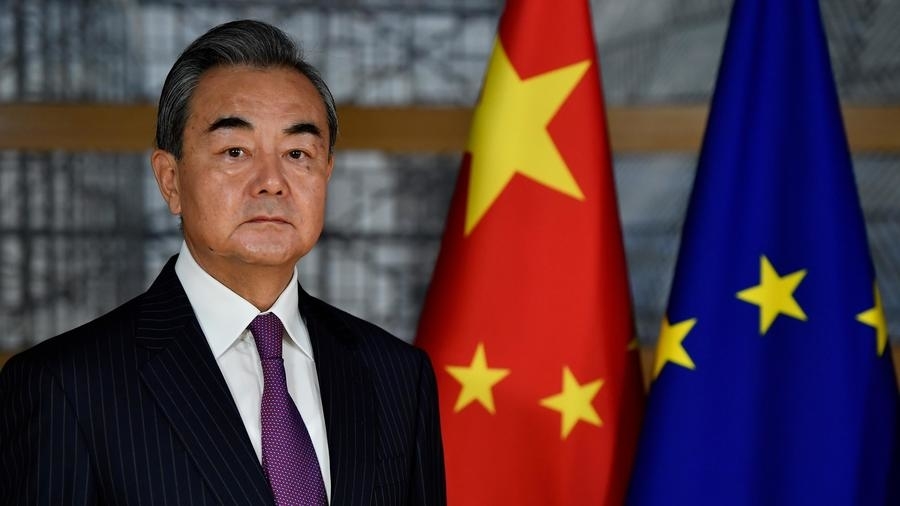PARIS, Sept 1 (NNN-XINHUA) – Lies and rumours about China’s response to climate change or its policies on Xinjiang and Hong Kong are bound to be debunked by facts, visiting Chinese State Councillor and Foreign Minister, Wang Yi, said at the French Institute of International Relations in Paris.
Wang made these remarks when responding to a question by a member of the European Parliament, who claimed that China’s deeds and words are not consistent on climate change and that China’s policies on Xinjiang and Hong Kong are not in line with the values of the European Union.
On climate change, Wang said, “We are not only clear but also resolute in our actions. First of all, despite pressure from various parties, we stood firmly with France and facilitated the signing of the landmark Paris Agreement,” he said.
“Secondly, China achieved the 2020 target of emission reduction two years ahead of schedule.”
The share of non-fossil energy in China’s total energy consumption has risen to nearly 15 percent; the installed capacity of renewable energy accounted for 30 percent of the world’s total, making up 44 percent of the global increase, Wang explained.
What’s more, he noted, over half of the world’s new energy vehicles are now running on Chinese roads, and a quarter of the world’s newly afforested area since 2000 is in China.
“Thirdly, we have not stopped there,” Wang added. “China is making new plans with long-term goals based on the new ecological needs of the country.”
“These facts and figures show that China does what it says. It is also a fact that the air quality in Beijing is getting better and better,” he said.
On the situation in Hong Kong, Wang said, “It is China’s internal affairs and no foreign country has the right to interfere. We never discuss the internal affairs of other countries, as we believe that all governments will run their own affairs well and fulfil their due responsibilities.”
He went on to explain that the law on safeguarding national security in Hong Kong was promulgated to fill a major loophole in Hong Kong’s legal system and has contributed to making Hong Kong a safer and more stable place.
“Since the second half of last year, the world has seen the chaos in Hong Kong — its Legislative Council being smashed, subway paralysed, innocent people being injured, and a lawmaker being stabbed in a terrorist attack. If the chaos continues, Hong Kong will have no future and the ‘one country, two systems’ policy can hardly be sustained,” said Wang.
“Any country, including France, must have laws to safeguard national security. And this is the authority of the central government. You can’t just sit back and watch this chaos continue,” he said.
After the National People’s Congress, China’s top legislature, decided to fill this major loophole in Hong Kong’s legal system, nearly three million citizens in Hong Kong offered their signatures in support. And since the national security law for Hong Kong was implemented, nearly 80 percent of Hong Kongers believe that the city is getting safer and more stable, Wang added.
Moreover, chapter I of the national security law for Hong Kong clearly states its goal of “ensuring the resolute, full and faithful implementation of the policy of ‘one country, two systems’,” Wang said.
He said, the national security law for Hong Kong also clearly stipulates that human rights shall be respected and protected in safeguarding national security in Hong Kong, including the rights and freedoms which Hong Kong residents enjoy under the Basic Law of HKSAR and the provisions of the International Covenant on Civil and Political Rights and the International Covenant on Economic, Social and Cultural Rights as applied to Hong Kong.
Therefore, the promulgation and implementation of the national security law for Hong Kong will not only safeguard the basic rights and freedoms of Hong Kong residents, but will also ensure the implementation of “one country, two systems” in a more stable and sustainable way, said Wang.
At the same time, all foreigners and foreign companies in Hong Kong will enjoy full legal protection, he added.– NNN-XINHUA






